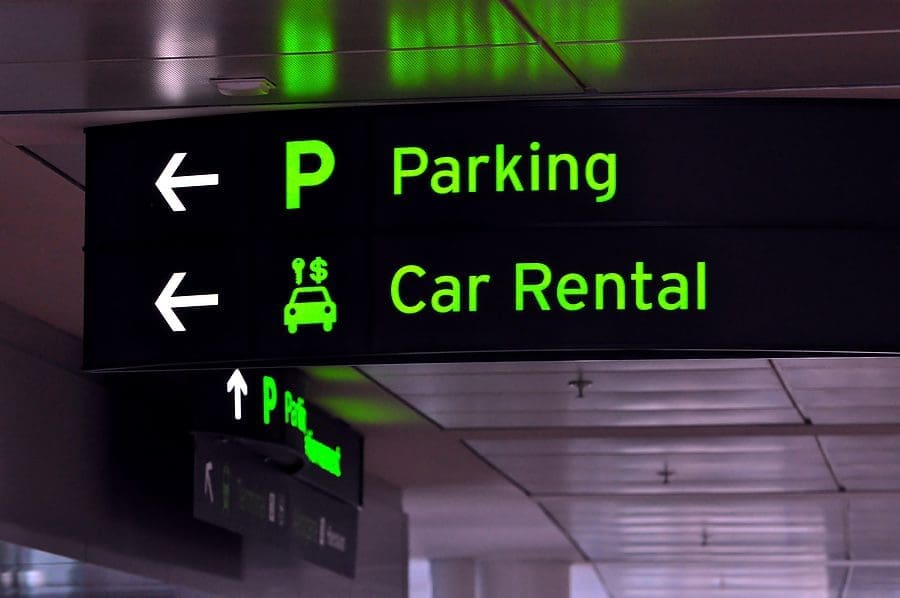JONES LAW GROUPYour Lawyers for Life! Personal Injury Law Firm in St. Petersburg

Most people who rent a car are doing so for something fun, like taking a cross-country trip, heading to the beach, etc. Having an accident in that rental can not only ruin that trip, it could also lead to a lot of headaches. Those hassles could even be worse if you or someone else is […]
Call our personal injury law office directly at (727) 512-9847
At Jones Law Group in St. Petersburg, FL, we would like to hear from you. Contact us for a free personal injury case consultation.
Call our personal injury law office at (727) 512-9847
Get educated on the Florida's personal injury laws and more.
Most people who rent a car are doing so for something fun, like taking a cross-country trip, heading to the beach, etc. Having an accident in that rental can not only ruin that trip, it could also lead to a lot of headaches. Those hassles could even be worse if you or someone else is injured. If that’s the case, then you might need to start looking into attorneys.
Jones Law Group attorneys can help you navigate the potential complexities and help you obtain the compensation you have coming to you. If you would like to learn more or schedule a free review of your case, use our online form or give us a call at (727) 571-1333.
Here’s some information that will help clear up some of the confusion that typically results from accidents involving rental cars.
If you’ve been hurt in any kind of car accident, whether it involves a rental car or not, you’re going to incur losses, or “damages.” Damages can include medical bills, wages you’ve lost because you can’t work, and many others.
But if the accident occurs in a rental, you might have other ways to pursue compensation. Here are just a couple to keep in mind.
Even if you don’t have car insurance, you might want to consider buying insurance from the rental car company. If you are insured, it could still be a very good idea. Rental insurance will increase the amount of coverage you already have. This will be especially smart if you’re only carrying liability coverage.
Of course, no one gets on the road planning to get involved in a wreck – that’s why the vast majority of us have insurance in the first place. There’s a chance your regular policy might be just fine. It could very well provide enough coverage for your medical expenses, as well as damages incurred by another driver if you’re to blame for an accident.
But you should check your policy just to make sure. Look at the limits of that policy, as well as the deductible. If you’re not sure that policy will be enough, it won’t hurt to stay on the safe side and take what the rental company is offering.
Did you pay for the rental with a credit card instead of your debit card or cash? If that’s the case, then you probably already have a waiver for collision damage. This simply means that the rental car company won’t be able to go after you for any damage. There’s even a chance your card will reimburse you up to $1,000 for the deductible.
Credit card coverage will typically not be a substitute for insurance offered by the company that rented you the car. It will probably only cover things like collision damage, administrative fees and towing expenses. Card coverage won’t pay for medical expenses.
Since different cards have different benefits, call your credit card company for more information on exactly what it will cover.
Just like in any kind of car accident, determining how to blame – and how much compensation the driver will receive if hurt – can be challenging. You might be driving a rental through Florida and you’re trying to make a right turn on red, while the other driver is making a U-turn. If your two vehicles collide, who will be to blame?
There are a lot of factors that will go into establishing liability. Two of the most important will be who was driving the rented vehicle, and whether or not that person is out of state.
If the driver wasn’t authorized, there’s a chance the rental insurance won’t cover any damages that result from an accident. That means if the driver of the rental wasn’t the so-called “permissible driver,” you might have to pursue compensation through the company that insures the driver’s personal vehicle.
Another consideration is whether the person renting the vehicle is from out of state. That person might not have enough coverage to meet Florida’s minimum requirements. In this kind of instance, you’ll also have to pursue compensation through their personal auto policy.
Even if you’re convinced the other driver is to blame for the accident, you’re going to need evidence to prove your case. This means taking pictures, getting witness statements (or at least the names and phone numbers of people who saw the accident), and having documentation of your injuries (photos, medical bills, etc.).
It will also be very wise to hire a skilled attorney. Your legal representative can find evidence you might not be able to get on your own, such as footage from nearby video cameras. In many instances, law firms will call in expert witnesses to make a client’s case even stronger.
Suppose there was something wrong with the rental car, and that malfunction played a role in causing the accident. The brakes might have been faulty, or the tires may have not been properly inflated – they might have even been bald. If that’s the case, you might be able to take action against the rental car company as well.
Very few automobile accidents are straightforward – especially those that involve injuries. As you can see, the complexities only increase when an accident involves a rental car.
The last thing you’ll want to deal with is the hassle of trying to deal with all of the complexities on your own. If you’ve been hurt, all you should have to concentrate on is getting better as fast as you can.
Contact the attorneys at Jones Law Group for a free consultation to review the details of your case. You can contact us online or at 727-571-1333.

By: Heath C. Murphy + – Personal Injury One of the more consistent and common characteristics of people who have been injured in an accident that I have noticed is a reluctance to ask questions about their medical condition or treatment plan. A doctor will tell his patient that he has a herniated disc with […]

Any sort of catastrophic injury, no matter what happens to cause it, will typically result in a lifetime of pain, misery and debilitation. When that injury is due to someone else’s negligence, such as when the driver of a car hits a motorcycle, or a careless truck driver collides with a passenger vehicle, that can […]

There’s obviously no good time to be involved in an accident with a truck, but it’s even worse when it happens during the holidays. This is supposed to be a fun, festive time of year, not one to have to deal with excruciating pain and a mountain of medical bills. Unfortunately, this happens far too […]

Here’s a recap of what to expect when you meet a personal injury lawyer to discuss your case. Summary Dealing with a personal injury can be overwhelming, especially when it comes to understanding your legal rights and options. This is why a free consultation with a personal injury lawyer is an invaluable tool. At Jones […]

The distinction between coup vs. contrecoup brain injuries is where the damage is located; both coup and contrecoup brain injuries are common in Florida personal injury accidents. Summary Just about any kind of personal injury accident can result in a severe brain injury. Two of the most common are “coup” and “contrecoup” brain injuries. While […]

Motorcycle accidents can have devastating consequences, causing severe injuries and leaving a lasting impact on the lives of those involved. These accidents often result in physical and mental disabilities, affecting the victim’s quality of life, financial stability, and overall well-being. The following is a closer look at just some of these terrible impacts. The attorneys […]
Speak with us before time runs out! In Florida, you have a limited window to file a personal injury case, so speak to an Attorney today.
Call our personal injury law office directly at (727) 512-9847
Jones Law Group is a dedicated personal injury lawyer in St. Petersburg, FL, serving the Tampa Bay area since 2006. Our experienced attorneys specialize in car accidents, slip and fall cases, employment law disputes, construction law issues, and overtime wage claims, fighting for maximum compensation on a contingency fee basis. Contact us for a free consultation to discuss your case.
Call our personal injury law office at (727) 512-9847
© Copyright 2006–2025 Jones Law Group Attorneys at Law. All rights reserved. Privacy Policy Terms of Use
Attorney Advertising.
The information on this website is for general information purposes only. Nothing on this site should be taken as legal advice for any individual case or situation. This information is not intended to create, and receipt or viewing does not constitute, an attorney-client relationship. Past results do not guarantee similar outcomes.
Are you injured or wronged and interested in a consultation? Fill out the form for a free consultation with us.